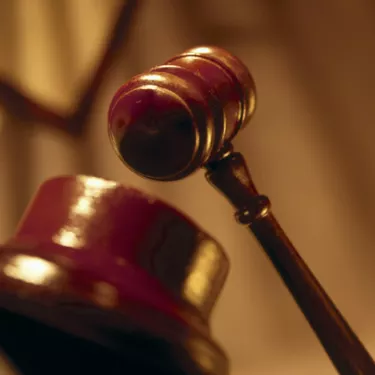
A creditor gets an official judgment when it wins a lawsuit against you for an outstanding balance you neglected to pay. Although state laws differ, creditors can typically use their court judgments to take such collection action as garnishing wages and levying bank accounts. The debtor's death limits the creditor's options for collecting the judgment, sometimes rendering collection impossible.
Probate Court
Video of the Day
Whenever an individual dies, his estate becomes the probate court's responsibility. The probate court and the executor of the debtor's estate distribute the deceased's remaining assets among his creditors and heirs. The creditor must file a claim with the probate court to receive payment for the judgment from the deceased's estate. Time limits for filing a claim vary by state.
Video of the Day
Insolvent Debtors
If an individual leaves behind more debt than assets when she dies, the probate court deems her estate "insolvent." Insolvent estates do not go through the probate process because there is nothing to distribute. If a debtor dies insolvent, the creditor holding the judgment can limit its financial losses by claiming the unpaid debt as a tax loss.
Collecting From Family
A creditor that holds a judgment against a deceased individual may contact his family members and request that they pay the debt on his behalf. The deceased's family members are not legally obligated to repay his debts but have the option to do so. A creditor can also hire a collection agency to attempt to procure the debt from the deceased debtor's family members.
If asked, the creditor or the collector it hires must disclose that the family members are not legally responsible for payment. The creditor or collection agency must also cease all contact with the deceased's family if asked to do so. It is illegal to harass a deceased individual's family members in an effort to collect her unpaid debts.
Judgment Liens
Judgments typically give creditors the right to place liens against an individual's property. If a creditor uses its court judgment to attach a lien to real estate the debtor owns, his death does not automatically dissolve the lien. Whoever takes on responsibility for the debtor's property must pay off the creditor's lien before selling the property.
An exception to this rule applies if the debtor was a partial owner of the property under joint tenancy with right to survivorship. Joint tenancy laws dictate that, once a property owner dies, full ownership of the property passes to the other property owner, dissolving any judgment liens against the property due to the deceased's unpaid debts.